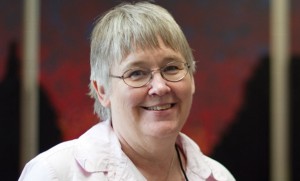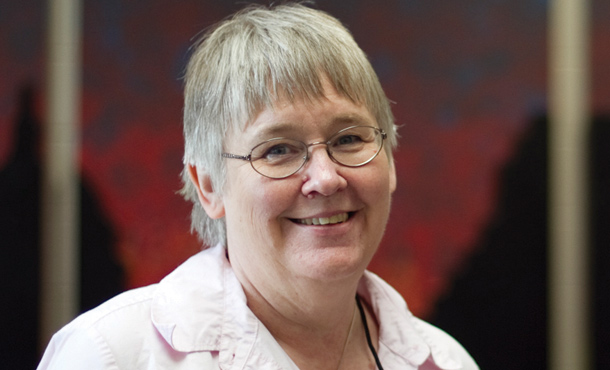Founded initially as a program to assist religious leaders and other caregivers in New York after 9/11, the demand for STAR is growing so fast, program director Elaine Zook Barge spends much of her time identifying and training new facilitators for STAR.
In 2008, there were 23 STAR sessions held in seven states and two countries. In 2009, 33 STAR sessions – a 30 percent increase in one year – have been scheduled in seven states and four countries.
STAR – which stands for Strategies for Trauma Awareness and Resilience – seems to meet a vast array of needs. In December 2007, five Russian citizens affected by the 2004 Beslan school hostage crisis in Chechnya (where 334 hostages died) came to EMU and took STAR, with the help of an interpreter. Twenty people from Pakistan sought to come to a September 2009 STAR held at EMU, but were unable to get visas. One CJP MA alumnus Ali Gohar, a Pakistani national, thinks he has the solution to that problem: find funding to bring STAR to Pakistan. South of the U.S. border, STAR is being embraced by people hardened and traumatized by struggles against organized crime in Mexico – 10 STAR sessions have been held or scheduled in various locations in Mexico in 2009-10, always in Spanish.
In the United States, Jubilee Partners of Georgia hopes to use STAR to improve its work with refugees, who often arrive traumatized by violence in their home countries. In Michigan, the Christian Reformed Church is exploring STAR as a tool to help church leaders address racism within their church.
Variations of STAR have been developed for:
- youths aged 14 to 20
- villages with low literacy levels (using pictures instead of written words)
- veterans of war
- groups involved in historical traumas, such as the descendants of slaves and the descendants of slave-holders (see article on facing page).

Jan Jenner, director of CJP’s Practice & Training Institute, has been involved in STAR since its inception. “It’s been humbling and gratifying to see how many individuals have found STAR helpful in their personal and professional lives, and how many communities have benefited as a result,” says Jenner. “STAR touches deep places in people’s souls. As importantly, it provides knowledge and skills for working through deep hurts held by individuals and communities.”
One of the current challenges is finding funding to offer STAR to community and church leaders wanting to help returning veterans and their families. Says Barge: “STAR could help vets and their families better understand the ‘wounds of war’ and discover wellsprings of resilience and healing.”
